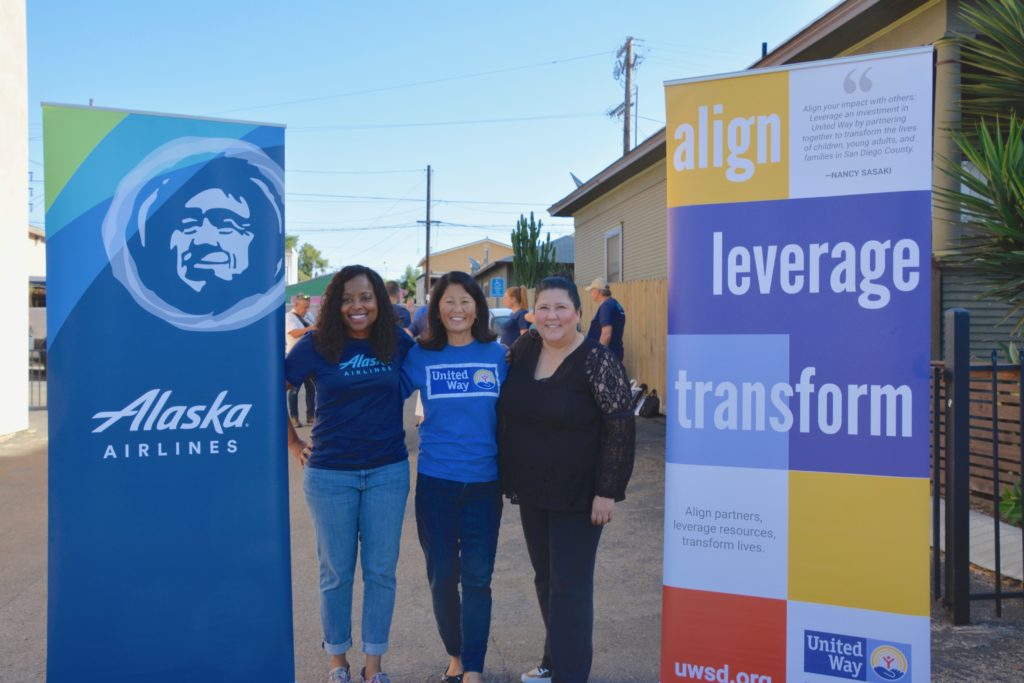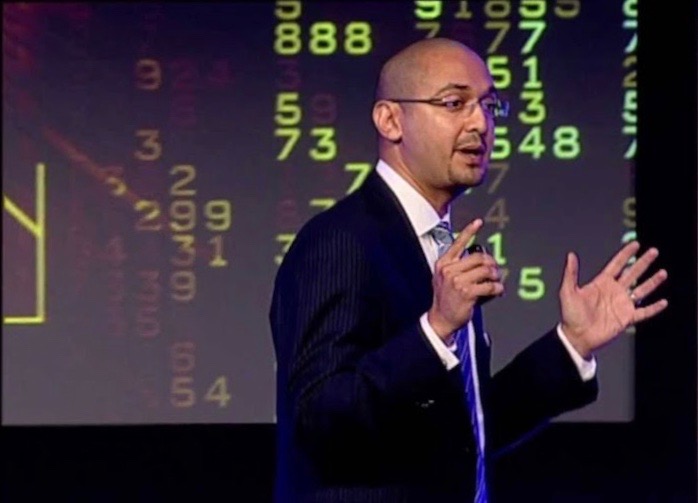Daily Business Report-Oct. 16, 2019
Governor’s prescription plan pits
state against Medi-Cal providers
By Elizabeth Aguilera | CALmatters
Health clinics and hospitals that serve some of California’s poorest patients are warning that they stand to lose millions of dollars a year as a result of Gov. Gavin Newsom’s executive order to consolidate the state’s prescription drug purchases.
Currently, these providers benefit from a federal program that allows them to buy drugs at a lower price yet get reimbursed at a higher price. It works like this: Pharmaceutical companies are required to sell certain drugs at a discount to participating providers that serve low-income patients in the government’s Medicaid program (called Medi-Cal in California). But then the nonprofits can bill the insurer, in some cases Medi-Cal directly, at standard, higher rates.
The nonprofit providers get to keep the difference — extra money they say allows them to operate on-site pharmacies, recruit doctors to rural areas and staff urgent-care clinics.
Newsom’s plan would move all Medi-Cal patients into a fee-for-service system, meaning the state would oversee all of their pharmacy benefits. That would put a stop to nonprofit health providers taking advantage of the federal program that provides the deep drug-buying discounts.
If it takes effect, St. John’s Well Child and Family Center in Los Angeles could lose 10 percent of its budget, roughly around $10 million, and would have to close three on-site pharmacies and lay off at least 70 people, said president and CEO Jim Mangia.
“Right now patients don’t have to get on three buses to get to a pharmacy,” he said. “We can monitor their medication adherence and do patient education on how to use the medication on site.”
At West Oakland Health, which operates five sites in the East Bay, the pharmacy team hangs in the balance, said pharmacy director James McCabe. Other clinic programs he says are in jeopardy: homeless outreach, pro-bono pharmacy services to undocumented patients, health education, and a food pharmacy where they provide fresh produce in a grocery desert.
“The governor’s order as its written,” he said, “is an existential threat to us.”
_____________________
Hilary Hageman appointed senior VP
and general counsel at Cubic Corporation

Cubic Corporation announced the appointment of Hilary Hageman as senior vice president, general counsel and corporate secretary. Hageman will be responsible for managing the legal department as well as overseeing ethics, contracts, global trade compliance and security.
Hageman succeeds Jim Edwards, will transition to an executive advisory role and continue to provide support until his retirement in June 2020. Edwards joined the company in 2008.
Hageman is a business leader with extensive legal experience. Prior to joining Cubic, she was the senior vice president and deputy general counsel for SAIC. She has also held senior legal counsel roles at CACI, the U.S. intelligence community and Department of Defense. She holds a Juris Doctorate degree from Emory University School of Law, Master of Laws from Georgetown University and Bachelor of Arts in History from Vassar College.
_____________________
Northrop Grumman pilots new student
talent pipeline program in San Diego
Northrop Grumman Corporation has launched a new talent pipeline program in San Diego that provides community college students enrolled in science, technology, engineering and mathematics (STEM) degrees with paid, work-based learning opportunities and a pathway to qualification for careers in the aerospace and defense industries.
Northrop Grumman partnered with MiraCosta College and Palomar College for the pilot phase of the new program during school year 2019-2020 and is exploring additional partnerships through the San Diego & Imperial Counties Community College Association for school year 2020-2021.
“Establishing a framework to collaborate with education systems is necessary for building a strong local talent pipeline and supports a long-term workforce planning strategy,” said Alfredo Ramirez, vice president, engineering, Northrop Grumman. “Our decision to develop a community college pilot fills a critical gap bridging K-12 and university programming, allowing us to reach and engage students in San Diego throughout their education journey.”
A small cohort of students from MiraCosta and Palomar colleges were selected for the fall 2019 semester through an application and interview process. These students are now part- time engineering assistants and technicians and will earn credit at their respective colleges while gaining valuable career experience in systems integration and test, software engineering and electronics and payloads at Northrop Grumman’s San Diego Autonomous Design Center of Excellence located in San Diego.
_____________________
Salk scientist Tony Hunter receives
NCI’s Outstanding Investigator Award

Salk scientist Tony Hunter has received a National Cancer Institute (NCI) Outstanding Investigator Award, which supports accomplished leaders in cancer research. Hunter, who is an American Cancer Society professor, will receive more than $7.5 million over the next seven years to further his work.
According to the NCI, the award supports investigators who are providing significant contributions toward understanding cancer and developing applications that may lead to a breakthrough in cancer research.
“Tony’s seminal discovery in 1979 that tyrosine residues in proteins are phosphorylated by specific kinases, and that the aberrant regulation of tyrosine kinases has been shown to be a critical hallmark of many cancer cells, changed the course of development for cancer therapies,” says Salk President Rusty Gage. “We are delighted that he continues to receive recognition for his outstanding achievements as well as ongoing support for his innovative research to discover new therapeutic targets.”
_____________________

Alaska Airlines employees donate time to paint
future home of Barrio Logan College Institute
United Way of San Diego County organized a volunteer event for Alaska Airlines employees to give back to the local community during the airline’s “Week of Lift,” a week in which Alaska Airlines employees from around the nation lead volunteer projects in their respective markets.
On Oct. 11, 25 Alaska Airlines employees led by their managing director of community relations Shaunta Hyde donated their time and talent for an improvement project at the future home of the Barrio Logan College Institute (BLCI), which is under construction. Volunteers put a fresh coat of paint on the walls of BLCI’s new administration offices, and also wrote inspirational notes of encouragement in 100 age-appropriate books for BLCI’s library area in their new student center that is estimated to open in winter 2020.
The Barrio Logan College Institute is at 2104 National Ave., San Diego.
_____________________
Commentary
California’s AB 5 will kill the gig economy
and force more companies to leave
By Kerry Jackson | Special to CalMatters
Proposition 13 was called the political equivalent of a sonic boom by economist Art Laffer.
In limiting how much local governments could drain from Californians through property taxes, fed-up voters changed the political landscape with the 1978 ballot measure in a way that few state policies have, before or since.
Howard Jarvis’ Proposition 13 swept the country and made headlines around the world.

Sounds a lot like Assembly Bill 5. The difference is Prop 13 is a force for good. AB 5 is a destroyer. Worse, other states are determined to duplicate California’s mistake.
AB 5, passed and signed last month, virtually bars Californians from working in the gig economy. The law, which implements a California Supreme Court decision, implements imposes a three-pronged test that identifies who’s still free to be a contract worker and who has to be a hired employee.
A worker can be an independent contractor only if he or she:
- A) Is free from the control and direction of the hirer in connection with the performance of the work, both under the contract for the performance of such work and in fact;
- B) Performs work that is outside the usual course of the hiring entity’s business; and
- C) Is customarily engaged in an independently established trade, occupation, or business of the same nature as the work performed for the hiring entity.
Is there a freelance worker who could possibly pass Part B?
Under that requirement, janitors could work as independent contractors only when they have contracts with companies not in the business of cleaning.
Or a rideshare driver could work under a contract with Uber or Lyft only if those companies were primarily in the business of, say, selling vacuum cleaners.
It’s a rigid framework, says labor law firm Fisher Phillips, that will appear, if it already hasn’t, in “the nightmares of your average gig economy business executives.”
It’s already a bad dream for workers.
“Despite AB 5, Uber Drivers Would Rather Quit Than Be Employees,” reads the headline to the first installment of a two-part series in the online publication, Los Angeleno. One driver interviewed for the story said that “when the lawmakers make these laws, they don’t live our lives.”
“I have to pick my kids up or drop them off. I do that and come back to work, driving. What shift is going to let me do that other than this?”
Los Angeles Times columnist George Skelton, no puppet for corporations, recently wrote “there are tens of thousands of independent contractors who apparently don’t feel the slightest bit exploited. And they don’t want anything to do with formal employment or unions.”
The few able to pass the test and will remain independent contractors might not be independent for long.
In a signing statement, Gov. Gavin Newsom said the next step “is creating pathways for more workers to form a union, collectively bargain to earn more, and have a stronger voice at work.”
It is “in this spirit,” he said, that he would persuade political, labor, and business leaders to support an effort in which “workers excluded from the National Labor Relations Act” would have “the right to organize and collectively bargain.”
When Skelton said that maybe the aim of AB5 was “to rope in more dues-paying union members,” he might have been more correct than he realized.
Where Proposition 13 set off an extended era of prosperity, AB 5 will rob workers of the freedom and flexibility they want and sometimes need from freelance work, and force more companies to leave the state than already are. California’s once-dynamic economy is on track to becoming permanently sclerotic.
AB 5 is a historic mistake.
No one knows what kinds of jobs Americans will be working in 50 years, not even 25, just as who lived through the Depression had no idea what work was going to be like in the 21st century.
Classifying jobs through a government order is going to hold back the natural evolution of work. There are already regrets and there will be many more to come.
____
Kerry Jackson is a fellow with the Center for California Reform at the Pacific Research Institute. Pacific Research Institute is a non-partisan, free market think tank, kerryjacksonPRI@gmail.com. He wrote this commentary for CalMatters, a nonprofit, nonpartisan media venture explaining California policies and politics.

